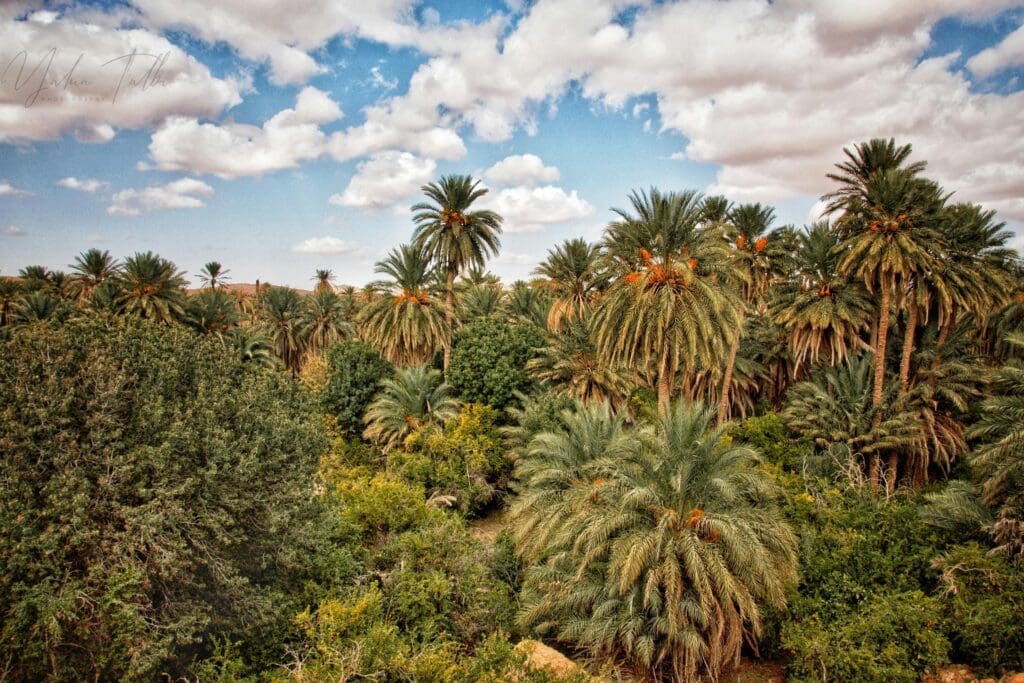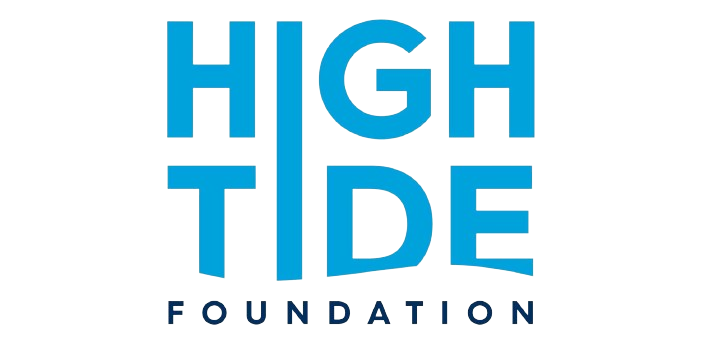Sustainable Agriculture
Reducing agricultural emissions and nurturing balanced ecosystems
What’s the challenge?
Agriculture is a major contributor to the climate emergency, responsible for approximately 11.7% of global greenhouse gas emissions.
As well as carbon emissions from machinery and deforestation, agricultural activities result in the production of potent greenhouse gases including methane (CH4) and nitrous oxide (N2O). Nitrous oxide is about 265 – 300 times more powerful (by global warming potential) than carbon dioxide (CO2).
Methane is produced by livestock digestion, in a process called enteric fermentation, as well as from the management of livestock manure. Nitrous oxide, though also produced by manure, primarily results from the application of nitrogen-based synthetic fertilisers (often in the form of ammonium or urea) to the soil.
When farmers use nitrogen fertilisers, not all of it is absorbed by crops, and some of it leaches into surrounding waterways. Soil microbes convert the remaining ammonia to nitrous oxide gas in a process called nitrification, which is then released into the atmosphere. This process is fuelled by an excessive use of fertilisers, and their application during sub-optimal weather and soil conditions.
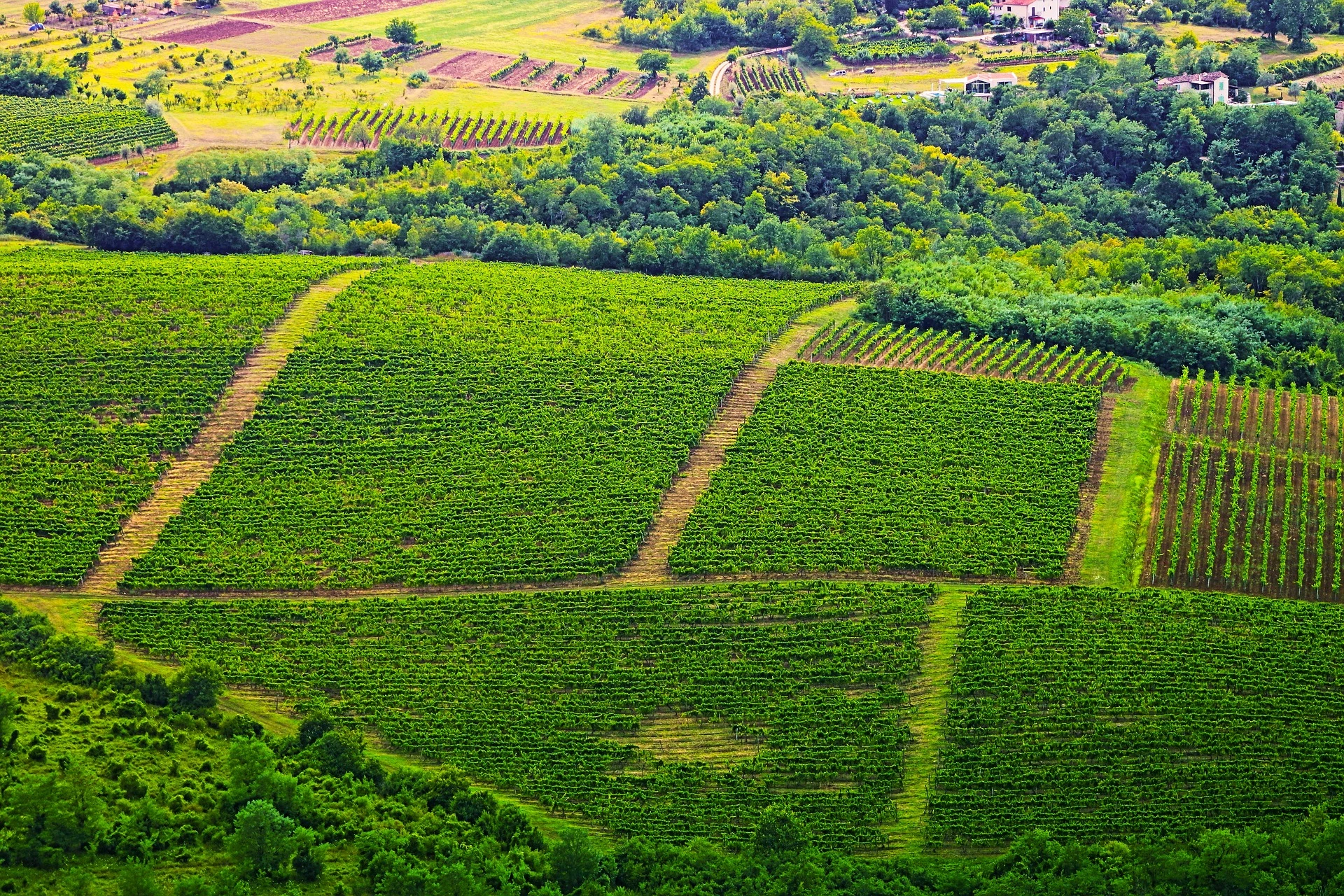
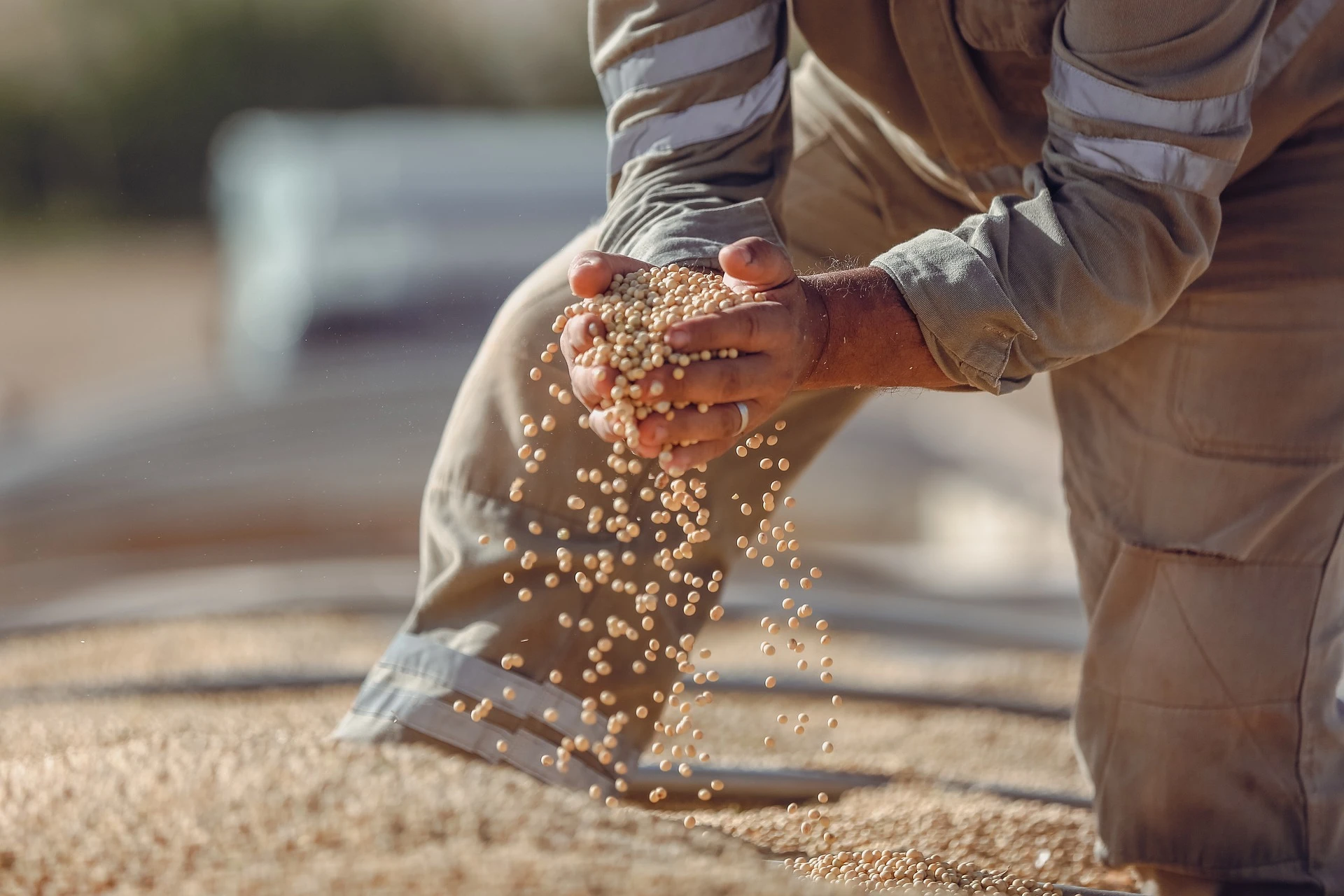
Agriculture is also having a detrimental effect on soils worldwide. Soils are a key carbon store, as they absorb carbon from living and dead components of organisms, including fine plant roots, fungi, microbes and decomposing plants and animal residues. However, intensive farming is depleting and damaging soils, undermining their ability to sequester carbon and help remove it from the atmosphere.
An overreliance on synthetic fertilizers is just one factor behind soil degradation: practices like heavy tilling, monocropping, poor irrigation, pesticide overuse, overgrazing, and improper waste management are all eroding soil health and releasing more carbon dioxide into the air.
As food systems become increasingly vulnerable to the impacts of climate change and environmental damage, it is essential that we transform agriculture practices to be more sustainable and resilient.
How are sustainable agriculture credits generated?
Projects using sustainable agriculture methodologies employ a wide range of improved agricultural practices designed to reduce greenhouse gas emissions and/or enhance the absorption of carbon by soils.
These practices include reduced tillage and improved residue management, crop rotation, improved grazing activities, optimized fertilizer use, and improved water/irrigation management.
For example, reducing tillage can help to minimise disturbance, preserving soil structure and preventing carbon release.
Optimising fertiliser usage by only applying the amount required, using precision agriculture techniques, and timing applications in line with specific weather conditions, is effective in reducing nitrous oxide emissions.
Projects may encompass both reduction and sequestration, and some methodologies allow crediting for multiple practices.
Co-benefits of CCP-Approved sustainable agriculture carbon credits
REDD+ has the potential to deliver social and environmental benefits that go beyond the reduction of greenhouse gas emissions.
These include:
- Increased biodiversity: Many of the sustainable practices encompassed by these methodologies enhance biodiversity by reducing ecosystem disturbance and working in harmony with nature. For example, practices like crop rotation enhance biodiversity through diversifying the food sources and habitats available to wildlife. This stands in contrast to monoculture systems, which limit the variety of organisms that can inhabit an area.
- Reduced pollution: Limiting the use of synthetic fertilisers plays a critical role in reducing environmental pollution and biodiversity loss, as the leaching of nitrogen into rivers, lakes and seas can cause toxic algal blooms, in a process known as eutrophication that devastates aquatic ecosystems. Similarly, improving the treatment and disposal of animal manure helps to decrease the spread of nitrogen and phosphorus into waterways.
- Improved yields and resilience: Sustainable agriculture practices can also help to optimise crop yields by tackling issues like water scarcity, soil degradation and pest and disease control. Over the long term, this can help improve profitability for farmers – partly by reducing costs through practices such as optimised fertiliser use. However, financial and technical support are essential during the transition to new farming methods. Sustainable approaches that strengthen ecosystem resilience are also vital to safeguard food systems against the impacts of climate change.
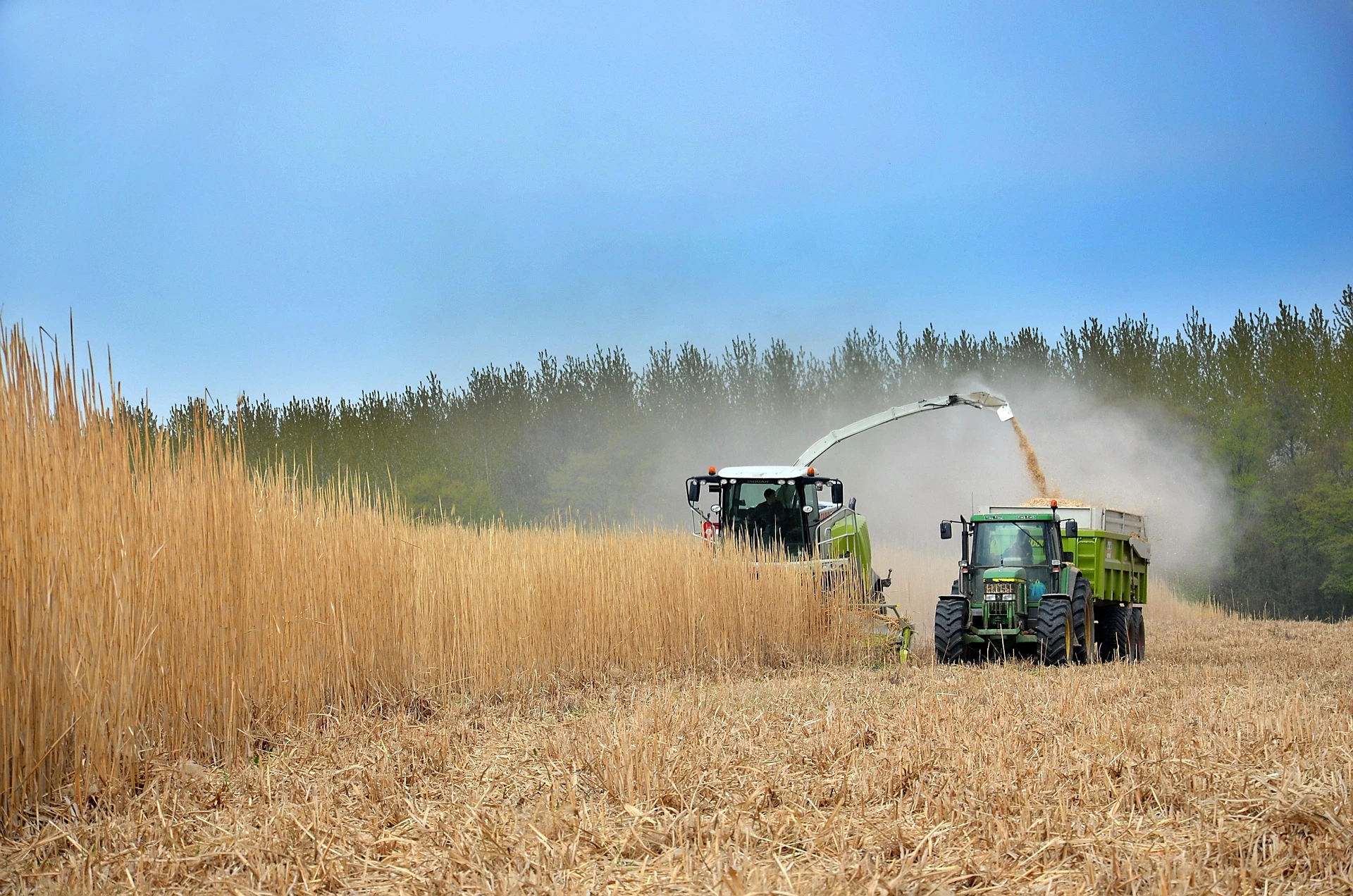
High-Integrity, CCP-Approved sustainable agriculture methodologies
The Integrity Council assesses methodologies against its Core Carbon Principles (CCPs) – a global threshold for high-integrity carbon credits. The following sustainable agriculture methodologies meet these rigorous standards, and are approved by the Integrity Council:
| Category | Program | Methodology and Version(s) | Assessment Type | Assessment in progress | Preparing draft report and recommendation | Scheduled for Governing Board Consideration | Decision & Informal Board Observations |
|---|---|---|---|---|---|---|---|
| Afforestation, Reforestation and Revegetation and Agroforestry | ACR | ACR Afforestation and Reforestation of Degraded Lands, v 1.0-1.2 | MSWG 2 |  |  |  | CCP-Approved Board Observations |
| Afforestation, Reforestation and Revegetation and Agroforestry | Climate Action Reserve (CAR) | CAR Mexico Forest Protocol - ARR, v 2.0 - 3.0 | Internal Assessment |  |  | ||
| Afforestation, Reforestation and Revegetation and Agroforestry | Gold Standard | GS Afforestation/Reforestation (A/R) GHG Emissions Reduction & Sequestration Methodology, v 2.1 | MSWG 2 |  | |||
| Afforestation, Reforestation and Revegetation and Agroforestry | Gold Standard | GS Sustainable Management of Mangroves, v 1.0 | Internal Assessment |  |  | ||
| Afforestation, Reforestation and Revegetation and Agroforestry | Isometric | ISM Agroforestry, v 1.0 | Internal Assessment |  | |||
| Afforestation, Reforestation and Revegetation and Agroforestry | Isometric | ISM Mangrove Restoration, v 1.0 | Internal Assessment |  | |||
| Afforestation, Reforestation and Revegetation and Agroforestry | Isometric | ISM Reforestation, v 1.1 | Internal Assessment |  |  |  | CCP-Approved |
| Afforestation, Reforestation and Revegetation and Agroforestry | Verified Carbon Standard | VM0047 Afforestation, Reforestation, and Revegetation, v 1.0 | MSWG 2 |  |  |  | CCP-Approved Board Observations |
| Afforestation, Reforestation and Revegetation and Agroforestry | Verified Carbon Standard | VM0047 Afforestation, Reforestation, and Revegetation, v 1.1 | Internal Assessment |  |  |  | CCP-Approved |
| Afforestation, Reforestation and Revegetation and Agroforestry | Equitable Earth | M001 - Quantification Methodology for Terrestrial Forest Restoration, v 1.2 | Internal Assessment |  |  | ||
| Avoided Grassland Conversion | Climate Action Reserve (CAR) | CAR Canada Grassland, v 1.0 | MSWG 2, Withdrawn | ||||
| Avoided Grassland Conversion | Climate Action Reserve (CAR) | CAR U.S. Grassland Protocol, v 2.1 | MSWG 2, Withdrawn | ||||
| Biochar | Climate Action Reserve (CAR) | CAR U.S. and Canada Biochar, v 1.0 | MSWG 6 |  |  |  | CCP-Approved Board Observations |
| Biochar | Isometric | Biochar Production and Storage, v 1.0 | MSWG 6 |  |  |  | CCP-Approved Board Observations |
| Biochar | Isometric | Biochar Production and Storage, v 1.1-1.2 | Internal Assessment |  |  |  | |
| Biochar | Puro.earth | Biochar Methodology_2022, v 3.0 | MSWG 6 |  | |||
| Biochar | Puro.earth | Biochar Methodology_2025, v 2.0 | Internal Assessment |  | |||
| Biochar | Verified Carbon Standard | VM0044 Methodology for Biochar Utilization in Soil and Non-Soil Applications, v 1.0-1.1 | MSWG 6, Withdrawn | ||||
| Biochar | Verified Carbon Standard | VM0044 Methodology for Biochar Utilization in Soil and Non-Soil Applications, v 1.2 | MSWG 6 |  |  |  | CCP-Approved Board Observations |
| Biodigesters (household) | Gold Standard | AMS-I.E. - Switch from non-renewable biomass for thermal applications by the user, v 1.0-13.0 | MSWG 5 |  |  |  | Does not meet Board Observations |
| Biodigesters (household) | Gold Standard | AMS-I.I. - Biogas/biomass thermal applications for households/small users, v 1.0-6.0 | MSWG 5 |  |  |  | Does not meet Board Observations |
| Biodigesters (household) | Gold Standard | GS Methodology for Animal Manure Management and Biogas Use for Thermal Energy Generation, v 1.0-1.1 | MSWG 5 |  |  |  | CCP-Approved Board Observations |
| Biodigesters (household) | Verified Carbon Standard | AMS-I.E. - Switch from non-renewable biomass for thermal applications by the user, v 1.0-13.0 | MSWG 5 |  |  |  | Does not meet Board Observations |
| Carbon Dioxide Removals | Gold Standard | GS Carbon mineralisation using reactive mineral waste, v 2.0 | Internal Assessment |  |  | ||
| Carbon Dioxide Removals | Gold Standard | GS Carbon Sequestration Through Accelerated Carbonation Of Concrete Aggregate , v 1.0 | MSWG 6 |  |  |  | CCP-Approved Board Observations |
| Carbon Dioxide Removals | Gold Standard | GS Methodology for Biomass Fermentation with Carbon Capture and Geologic Storage, v 1.0 | MSWG 6, Withdrawn | ||||
| Carbon Dioxide Removals | Gold Standard | GS Methodology for Biomass Fermentation with Carbon Capture and Geologic Storage, v 2.0 | Internal Assessment |  |  | ||
| Carbon Dioxide Removals | Isometric | Bio-oil Geological Storage, v 1.0-1.1 | MSWG 6 |  |  |  | CCP-Approved Board Observations |
| Carbon Dioxide Removals | Isometric | Biogenic Carbon Capture and Storage, v 1.0 | MSWG 6, Withdrawn | ||||
| Carbon Dioxide Removals | Isometric | Biogenic Carbon Capture and Storage, v 1.1 | MSWG 6 |  |  |  | CCP-Approved Board Observations |
| Carbon Dioxide Removals | Isometric | Biomass Geological Storage, v 1.0-1.1 | MSWG 6 |  |  |  | CCP-Approved Board Observations |
| Carbon Dioxide Removals | Isometric | Direct Air Capture, v 1.0 | MSWG 6, Withdrawn | ||||
| Carbon Dioxide Removals | Isometric | Direct Air Capture, v 1.1 | MSWG 6 |  |  |  | CCP-Approved Board Observations |
| Carbon Dioxide Removals | Isometric | Subsurface Biomass Carbon Removal and Storage, v 1.0 | MSWG 6 |  |  |  | CCP-Approved Board Observations |
| Carbon Dioxide Removals | Puro.earth | Carbonated Materials_2022, v 3.0 | MSWG 6 |  | |||
| Carbon Dioxide Removals | Puro.earth | Geologically Stored Carbon_2024, v 1.0 | MSWG 6 |  | |||
| Carbon Dioxide Removals | Puro.earth | Terrestrial Storage of Biomass_2023, v 1.0 | MSWG 6 |  | |||
| Carbon Dioxide Removals | Verified Carbon Standard | VM0049 Carbon Capture and Storage, v 1.0 | MSWG 6 |  |  | ||
| Efficient Cookstoves | Gold Standard | AMS-II.G. - Energy efficiency measures in thermal applications of non-renewable biomass, v 1-13.1 | MSWG 5 |  |  |  | Does not meet Board Observations |
| Efficient Cookstoves | Gold Standard | GS Emission Reductions from Safe Drinking Water Supply, v 1.0 | Internal Assessment |  |  | ||
| Efficient Cookstoves | Gold Standard | GS Methodology for Metered & Measured Energy Cooking Devices, v 1.0-1.2 | MSWG 5 |  |  |  | CCP-Approved Board Observations |
| Efficient Cookstoves | Gold Standard | GS The Gold Standard Simplified Methodology For Clean And Efficient Cookstoves, v 1.0-3.0 | MSWG 5 |  |  |  | Does not meet Board Observations |
| Efficient Cookstoves | Gold Standard | GS TPDDTEC - Reduced Emissions from Cooking and Heating, v 4.0 | MSWG 5 |  |  |  | CCP-Approved Board Observations |
| Efficient Cookstoves | Gold Standard | GS TPDDTEC – Technologies and Practices to Displace Decentralized Thermal Energy Consumption, v 2.0-3.1 | MSWG 5 |  |  |  | CCP-Approved Board Observations |
| Efficient Cookstoves | Verified Carbon Standard | VM0050 Energy Efficiency and Fuel-Switch Measures in Cookstoves, v 1.0 | Internal Assessment |  |  |  | CCP-Approved Board Observations |
| Efficient Cookstoves | Verified Carbon Standard | VMR0006 Energy Efficiency and Fuel Switch Measures in Thermal Applications, v 1.2 | MSWG 5, Withdrawn | ||||
| Enhanced Weathering | Isometric | Enhanced Weathering in Agriculture , v 1.0-1.1 | MSWG 6 |  |  | ||
| Enhanced Weathering | Puro.earth | Enhanced Rock Weathering Methodology_2022, v 1.0 | MSWG 6, Withdrawn | ||||
| Enhanced Weathering | Puro.earth | Enhanced Rock Weathering Methodology_2025, v 1.0 | Internal Assessment |  | |||
| Enteric Methane | Gold Standard | GS Methane Emissions Reduction from Enteric Fermentation in Beef Cattle Through Application of Feed Supplements, v 1.0 | MSWG 2, Withdrawn |  |  | ||
| Enteric Methane | Verified Carbon Standard | VM0041 Methodology for the Reduction of Enteric Methane Emissions from Ruminants through the Use of Feed Ingredients, v 2.0 | MSWG 2 |  |  | ||
| HFC Displacement | ACR | ACR Certified Reclaimed HFC Refrigerants, Propellants, and Fire Suppressants, v 1.0-2.0 | Internal Assessment |  |  | ||
| HFC Replacement | ACR | ACR Advanced Refrigeration Systems, v 1.0-3.0 | Internal Assessment |  |  | ||
| HFC Replacement | ACR | ACR Transition to Advanced Formulation Blowing Agents in Foam Manufacturing and Use, v 1.0-3.0 | Internal Assessment |  |  | ||
| HFC-23 destruction: HFC-23 abatement from HCFC-22 production | Verified Carbon Standard | AM0001 - Decomposition of fluoroform (HFC-23) waste streams , v 1.0-5.0 | Very Unlikely To Meet | ||||
| Improved Forestry Management | ACR | ACR Improved Forest Management (IFM) on Canadian Forestlands, v 1.0 | MSWG 1 |  | |||
| Improved Forestry Management | ACR | ACR Improved Forest Management (IFM) on Non-Federal U.S. Forestlands, v 1.3 | MSWG 1 |  |  | ||
| Improved Forestry Management | ACR | ACR Improved Forest Management (IFM) on Non-Federal U.S. Forestlands, v 2.0 | MSWG 1 |  |  |  | CCP-Approved |
| Improved Forestry Management | ACR | ACR Improved Forest Management (IFM) on Non-Federal U.S. Forestlands, v 2.1 | MSWG 1 |  |  |  | CCP-Approved Board Observations |
| Improved Forestry Management | ACR | ACR Improved Forest Management (IFM) on Small Non-Industrial Private Forestlands, v 1.0 | MSWG 1 |  |  | ||
| Improved Forestry Management | Climate Action Reserve (CAR) | CAR Mexico Forest Protocol, v 2.0 | MSWG 1 |  |  | ||
| Improved Forestry Management | Climate Action Reserve (CAR) | CAR Mexico Forest Protocol, v 3.0 | MSWG 1 |  |  |  | CCP-Approved Board Observations |
| Improved Forestry Management | Climate Action Reserve (CAR) | CAR U.S. Forest Protocol, v 5.1 | MSWG 1 | ||||
| Improved Forestry Management | Isometric | ISM Improved Forest Management, v 1.0 | Internal Assessment |  | |||
| Improved Forestry Management | Verified Carbon Standard | VM0003 Methodology for Improved Forest Management through Extension of Rotation Age, v 1.3 | Internal Assessment | ||||
| Improved Forestry Management | Verified Carbon Standard | VM0005 Methodology for Conversion of Low-Productive Forest to High-Productive Forest, v 1.2 | MSWG 1 | ||||
| Improved Forestry Management | Verified Carbon Standard | VM0010 Methodology for Improved Forest Management: Conversion from Logged to Protected Forest, v 1.4 | Internal Assessment | ||||
| Improved Forestry Management | Verified Carbon Standard | VM0012 Improved Forest Management in Temperate and Boreal Forests (LtPF), v 1.2 | MSWG 1 | ||||
| Improved Forestry Management | Verified Carbon Standard | VM0035 Methodology for Improved Forest Management through Reduced Impact Logging, v 1.0 | MSWG 1 | ||||
| Improved Forestry Management | Verified Carbon Standard | VM0045 Improved Forest Management Methodology Using Dynamic Matched Baselines from National Forest Inventories, v 1.2 | MSWG 1 |  |  |  | CCP-Approved Board Observations |
| Industrial Biodigesters | Climate Action Reserve (CAR) | CAR Argentina Livestock, v 1.0 | Internal Assessment |  |  | ||
| Industrial Biodigesters | Climate Action Reserve (CAR) | CAR Dominican Republic Livestock, v 1.0 | Internal Assessment |  |  | ||
| Industrial Biodigesters | Climate Action Reserve (CAR) | CAR Mexico Livestock Protocol, v 2.0 | Internal Assessment |  |  | ||
| Industrial Biodigesters | Climate Action Reserve (CAR) | CAR U.S. Livestock Protocol, v 1.0-4.0 | Internal Assessment |  |  | ||
| Industrial Energy efficiency (Supply side) | Verified Carbon Standard | AM0017 - Steam system efficiency improvements by replacing steam traps and returning condensate, v 1.0-2.0 | Very Unlikely To Meet | ||||
| Industrial Energy efficiency (Supply side) | Verified Carbon Standard | AM0018 - Baseline methodology for steam optimization systems , v 1.0-4.0 | Very Unlikely To Meet | ||||
| Industrial Energy efficiency (Supply side) | Verified Carbon Standard | AM0020 - Baseline methodology for water pumping efficiency improvements, v 1.0-2.0 | Very Unlikely To Meet | ||||
| Just Transition | Verified Carbon Standard | VM0052 - Accelerated Retirement of Coal-Fired Power Plants Using a Just Transition, v 1.0 | Internal Assessment |  |  | ||
| Landfill Avoidance | Climate Action Reserve (CAR) | CAR U.S. Organic Waste Composting Protocol, v 1.0-1.1 | Internal Assessment |  |  | ||
| Landfill Avoidance | Gold Standard | GS Methodology for Collection of Macroalgae to Avoid Emissions from Decomposition, v 1.0 | Internal Assessment |  |  | ||
| Landfill Gas Capture & Utilisation | ACR | ACR Landfill Gas Destruction and Beneficial Use Projects, v 1.0-2.0 | Internal Assessment |  |  |  | CCP-Approved Board Observations |
| Landfill Gas Capture & Utilisation | Climate Action Reserve (CAR) | CAR Mexico Landfill Protocol, v 2.0 | Internal Assessment |  |  | ||
| Landfill Gas Capture & Utilisation | Climate Action Reserve (CAR) | CAR U.S. Landfill Protocol, v 4.0 | Internal Assessment, Withdrawn | ||||
| Landfill Gas Capture & Utilisation | Climate Action Reserve (CAR) | CAR U.S. Landfill Protocol, v 5.0 | Internal Assessment |  |  | ||
| Landfill Gas Capture & Utilisation | Climate Action Reserve (CAR) | CAR U.S. Landfill Protocol, v 6.0 | Internal Assessment |  |  |  | CCP-Approved Board Observations |
| Landfill Gas Capture & Utilisation | Gold Standard | ACM0001 - Flaring or use of landfill gas, v 15.0-19.0 | Internal Assessment |  |  |  | CCP-Approved Board Observations |
| Landfill Gas Capture & Utilisation | Gold Standard | AMS-III.G. - Landfill methane recovery, v 9.0-10.0 | Internal Assessment |  |  |  | CCP-Approved Board Observations |
| Landfill Gas Capture & Utilisation | Verified Carbon Standard | ACM0001 - Flaring or use of landfill gas, v 15.0-19.0 | Internal Assessment |  |  |  | CCP-Approved Board Observations |
| Landfill Gas Capture & Utilisation | Verified Carbon Standard | AMS-III.G. - Landfill methane recovery, v 9.0-10.0 | Internal Assessment |  |  |  | CCP-Approved Board Observations |
| Landfill Gas Capture & Utilisation | Verified Carbon Standard | CAR U.S. Landfill Protocol, v 6.0 | Internal Assessment |  |  | ||
| Landfill Gas Capture & Utilisation | Verified Carbon Standard | VMR0016 Flaring or Use of Landfill Gas (ACM0001 Revision), v 1.0 | Internal Assessment | ||||
| Leak Detection/Repair in Gas Systems | Verified Carbon Standard | AM0023 - Leak detection and repair in gas production, processing, transmission, storage and distribution systems and in refinery facilities, v 4.0 | Internal Assessment |  |  |  | CCP-Approved Board Observations |
| Marine Carbon Dioxide Removals | Isometric | Ocean Alkalinity Enhancement from Coastal Outfalls, v 1.0 | MSWG 6 |  |  | ||
| Marine Carbon Dioxide Removals | Puro.earth | Direct Air Capture and Ocean Storage_2025, v 1.0 | Internal Assessment |  | |||
| Marine Carbon Dioxide Removals | Puro.earth | Marine Anoxic Carbon Storage_2025, v 1.0 | Internal Assessment |  | |||
| Marine Carbon Dioxide Removals | Puro.earth | Microalgae Carbon Fixation and Sinking_2025, v 1.0 | Internal Assessment |  | |||
| Mine Methane Capture and Utilization for Energy | ACR | ACR Capturing and Destroying Methane from Coal and Trona Mines in North America, v 1.0-1.1 | Internal Assessment |  |  | ||
| Mine Methane Capture and Utilization for Energy | Verified Carbon Standard | ACM0008 - Abatement of methane from coal mines, v 6.0-8.0 | Internal Assessment |  |  | ||
| N₂O Abatement in Adipic Acid Production | Climate Action Reserve (CAR) | CAR China Adipic Acid Production Protocol, v 1.0 | Internal Assessment |  |  |  | CCP-Approved |
| N₂O Abatement in Adipic Acid Production | Climate Action Reserve (CAR) | CAR U.S. Adipic Acid Production Protocol, v 1.0 | Internal Assessment |  |  |  | CCP-Approved |
| N₂O Abatement in Nitric Acid Production | Verified Carbon Standard | AM0028 - N2O destruction in the tail gas of Caprolactam production plants, v 1.0-6.0 | Very Unlikely To Meet | ||||
| N₂O Abatement in Nitric Acid Production | Verified Carbon Standard | AM0034 - Catalytic reduction of N2O inside the ammonia burner of nitric acid plants, v 1.0-5.1.1 | Very Unlikely To Meet | ||||
| N₂O Abatement in Nitric Acid Production | Climate Action Reserve (CAR) | CAR U.S. Nitric Acid Production Protocol, v 2.2 | Internal Assessment, Withdrawn | ||||
| N₂O Abatement in Nitric Acid Production | Climate Action Reserve (CAR) | CAR U.S. Nitric Acid Production Protocol, v 3.0 | Internal Assessment |  |  | ||
| New Natural Gas Power | Verified Carbon Standard | ACM0025 - Construction of a new natural gas power plant, v 1.0-2.0 | Very Unlikely To Meet | ||||
| New Natural Gas Power | Verified Carbon Standard | AM0107 - New natural gas based cogeneration plant, v 1.0-4.0 | Very Unlikely To Meet | ||||
| ODS Destruction | ACR | ACR Destruction of Ozone Depleting Substances (ODS) and High-Global Warming Potential (GWP) Foam, v 1.0-2.0 | Internal Assessment |  |  | ||
| ODS Destruction | ACR | ACR Destruction of Ozone Depleting Substances (ODS) from International Sources, v 1.0 | Internal Assessment |  |  |  | CCP-Approved |
| ODS Destruction | Climate Action Reserve (CAR) | CAR Article 5 Ozone Depleting Substances Protocol, v 1.0-2.0 | Internal Assessment |  |  |  | CCP-Approved |
| ODS Destruction | Climate Action Reserve (CAR) | CAR U.S. Ozone Depleting Substances Protocol, v 1.0-2.0 | Internal Assessment |  |  |  | CCP-Approved |
| REDD+ (Jurisdictional) | Architecture for REDD+ Transaction TREES (ART) | ART The REDD+ Environmental Excellence Standard (TREES) - HFLD, v 2.0 | MSWG 4 |  |  |  | |
| REDD+ (Jurisdictional) | Architecture for REDD+ Transaction TREES (ART) | ART The REDD+ Environmental Excellence Standard (TREES) - non HFLD, v 2.0 | MSWG 4 |  |  |  | CCP-Approved Board Observations |
| REDD+ (Jurisdictional) | Architecture for REDD+ Transaction TREES (ART) | ART The REDD+ Environmental Excellence Standard (TREES) - Removals, v 2.0 | MSWG 4 |  |  |  | |
| REDD+ (Jurisdictional) | Verified Carbon Standard | VCS Jurisdictional and Nested REDD+ (JNR) Framework, v 4.1 | MSWG 4 |  |  |  | CCP-Approved Board Observations |
| REDD+ (Project) | ACR | ACR Active Conservation and Sustainable Management on U.S. Forestlands, v 1.0 | MSWG 4 |  |  |  | |
| REDD+ (Project) | Verified Carbon Standard | VM0048 Reducing Emissions from Deforestation and Forest Degradation, v 1.0 | MSWG 4 |  |  |  | CCP-Approved Board Observations |
| Renewable Energy (Grid Connected) | Gold Standard | ACM0002 - Grid-connected electricity generation from renewable sources, v 1.0-21.0 | MSWG 3 |  |  |  | Does not meet Board Observations |
| Renewable Energy (Grid Connected) | Gold Standard | ACM0006 - Electricity and heat generation from biomass, v 1.0-16.0 | MSWG 3 |  |  |  | Does not meet Board Observations |
| Renewable Energy (Grid Connected) | Gold Standard | ACM0018 - Electricity generation from biomass in power-only plants, v 1.0-6.0 | MSWG 3 |  |  |  | Does not meet Board Observations |
| Renewable Energy (Grid Connected) | Gold Standard | AM0123 - Renewable energy generation for captive use, v 1.0 | MSWG 3 | ||||
| Renewable Energy (Grid Connected) | Gold Standard | AMS-I.D. - Grid connected renewable electricity generation, v 1.0-18.0 | MSWG 3 |  |  |  | Does not meet Board Observations |
| Renewable Energy (Grid Connected) | Verified Carbon Standard | ACM0002 - Grid-connected electricity generation from renewable sources, v 1.0-21.0 | MSWG 3 |  |  |  | Does not meet Board Observations |
| Renewable Energy (Grid Connected) | Verified Carbon Standard | ACM0006 - Electricity and heat generation from biomass, v 1.0-16.0 | MSWG 3 |  |  |  | Does not meet Board Observations |
| Renewable Energy (Grid Connected) | Verified Carbon Standard | ACM0018 - Electricity generation from biomass in power-only plants, v 1.0-6.0 | MSWG 3 |  |  |  | Does not meet Board Observations |
| Renewable Energy (Grid Connected) | Verified Carbon Standard | AM0123 - Renewable energy generation for captive use, v 1.0 | MSWG 3 | ||||
| Renewable Energy (Grid Connected) | Verified Carbon Standard | AMS-I.D. - Grid connected renewable electricity generation, v 1.0-18.0 | MSWG 3 |  |  |  | Does not meet Board Observations |
| Renewable Energy (Grid Connected) | Verified Carbon Standard | ACM0002 - Grid-connected electricity generation from renewable sources, v 22.0 | Internal Assessment |  |  | ||
| Renewable Energy (Grid Connected/Thermal) | Gold Standard | AMS-I.C. - Thermal energy production with or without electricity, v 1.0-22.0 | MSWG 3 | ||||
| Renewable Energy (Grid Connected/Thermal) | Verified Carbon Standard | AMS-I.C. - Thermal energy production with or without electricity, v 1.0-22.0 | MSWG 3 | ||||
| Renewable Energy (Mini-Grids) | Gold Standard | AMS-I.L. - Electrification of rural communities using renewable energy, v 1.0-4.0 | MSWG 3 |  |  |  | Does not meet Board Observations |
| Renewable Energy (Mini-Grids) | Verified Carbon Standard | AMS-I.L. - Electrification of rural communities using renewable energy, v 1.0-4.0 | MSWG 3 |  |  |  | Does not meet Board Observations |
| Renewable Energy (Off-grid) | Gold Standard | AMS-I.A. - Electricity generation by the user, v 1.0-19.0 | MSWG 3 |  |  |  | Does not meet Board Observations |
| Renewable Energy (Off-grid) | Verified Carbon Standard | AMS-I.A. - Electricity generation by the user, v 1.0-19.0 | MSWG 3 |  |  |  | Does not meet Board Observations |
| Renewable Energy (Thermal) | Gold Standard | AM0036 - Use of biomass in heat generation equipment, v 1.0-7.0 | MSWG 3 |  |  |  | Does not meet Board Observations |
| Renewable Energy (Thermal) | Gold Standard | AM0072 - Fossil Fuel Displacement by Geothermal Resources for Space Heating, v 1.0-3.0 | MSWG 3 |  |  |  | Does not meet Board Observations |
| Renewable Energy (Thermal) | Verified Carbon Standard | AM0036 - Use of biomass in heat generation equipment, v 1.0-7.0 | MSWG 3 |  |  |  | Does not meet Board Observations |
| Renewable Energy (Thermal) | Verified Carbon Standard | AM0072 - Fossil Fuel Displacement by Geothermal Resources for Space Heating, v 1.0-3.0 | MSWG 3 |  |  |  | Does not meet Board Observations |
| Rice Cultivation Methane Avoidance | Gold Standard | GS Methodology for Methane Emission Reduction by Adjusted Water Management Practice in Rice Cultivation, v 1.0 | MSWG 2 |  |  |  | CCP-Approved |
| Rice Cultivation Methane Avoidance | Verified Carbon Standard | VM0051 Improved Management in Rice Production Systems, v 1.0 | Internal Assessment |  |  | ||
| SF6 Avoidance | Verified Carbon Standard | AM0065 - Replacement of SF6 with alternate cover gas in the magnesium industry, v 2.1 | Internal Assessment |  |  |  | Does not meet |
| Sustainable Agriculture (Rotational Crops, Low Till/No Tillage etc) | Climate Action Reserve (CAR) | CAR U.S. Soil Enrichment Protocol, v 1.1 | MSWG 2 |  |  |  | CCP-Approved Board Observations |
| Sustainable Agriculture (Rotational Crops, Low Till/No Tillage etc) | Gold Standard | GS Soil Organic Carbon Framework Methodology, v 1.0 | MSWG 2 |  | |||
| Sustainable Agriculture (Rotational Crops, Low Till/No Tillage etc) | Verified Carbon Standard | VM0042 Methodology for Improved Agricultural Land Management, v 2.0-2.1 | MSWG 2, Withdrawn | ||||
| Sustainable Agriculture (Rotational Crops, Low Till/No Tillage etc) | Verified Carbon Standard | VM0042 Methodology for Improved Agricultural Land Management, v 2.2 | MSWG 2 |  |  |  | CCP-Approved Board Observations |
| Waste Heat Recovery | Verified Carbon Standard | ACM0012 - Waste energy recovery, v 1.0-6.0 | Very Unlikely To Meet | ||||
| Waste Heat Recovery | Verified Carbon Standard | AM0066 - GHG emission reductions through waste heat utilisation for pre-heating of raw materials in sponge iron manufacturing process, v 1.0 | Very Unlikely To Meet | ||||
| Waste Heat Recovery | Verified Carbon Standard | AMS-III.Q. - Waste energy recovery, v 1.0-6.1 | Very Unlikely To Meet |
A full list of all CCP-Approved methodologies, along with those still in assessment, can be found in our assessment status table.
What percentage of credits do CCP-Approved sustainable agriculture methodologies represent?
Approximately 1 million credits have been issued to date under CAR U.S. Soil Enrichment Protocol Version 1.1. Two projects are now registered under the methodology, expected to issue over 1 million credits annually.
As Verra (VCS) VM0042 v2.2 is a new version of the methodology, no projects have yet been registered or carbon credits issued, but all projects in the Verra Registry that are using earlier versions of the methodology – which have not been assessed – have the potential to generate 126 million ERRs annually.
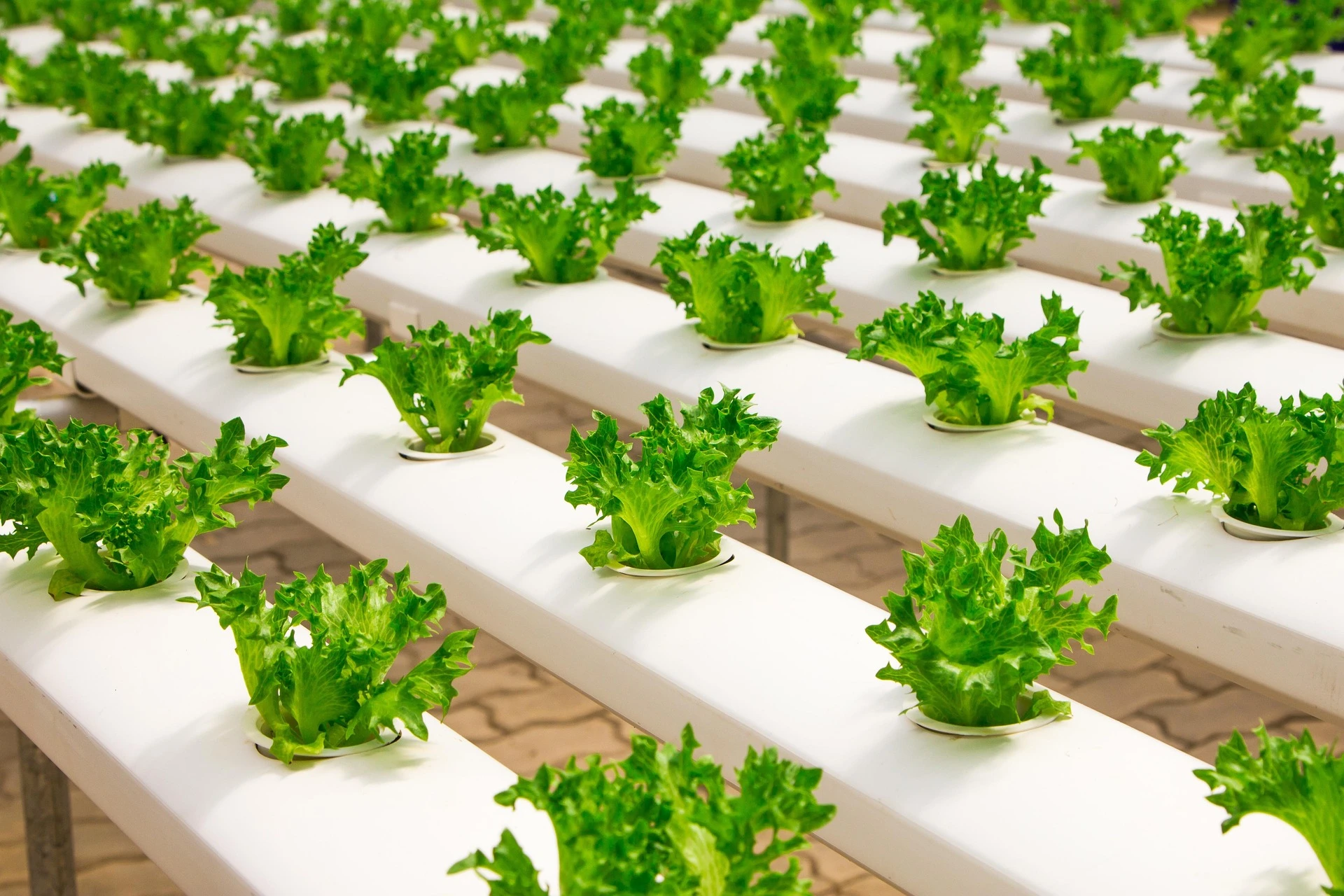
How we assess categories of carbon credits:
Learn about the other part of the ICVCM’s two tick process – the assessment of categories of carbon credits.
